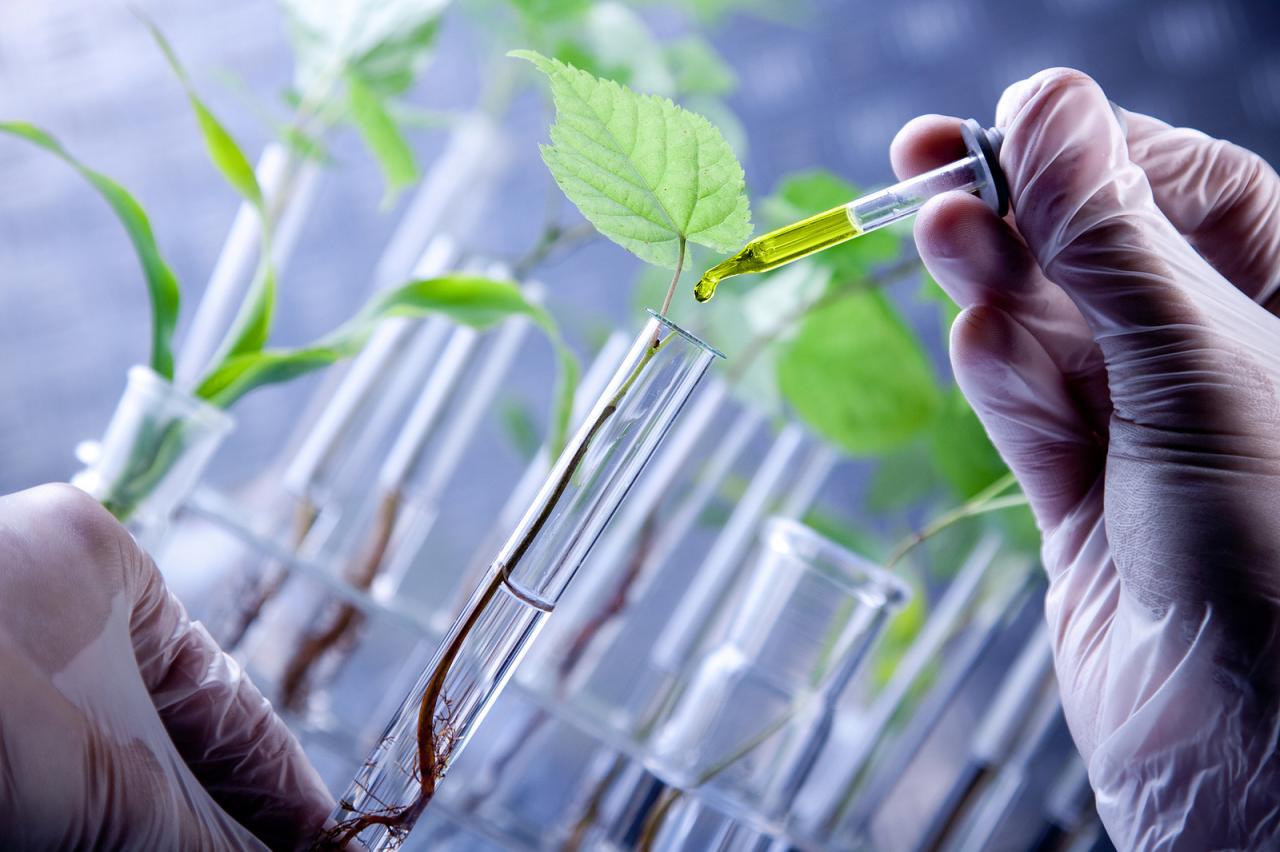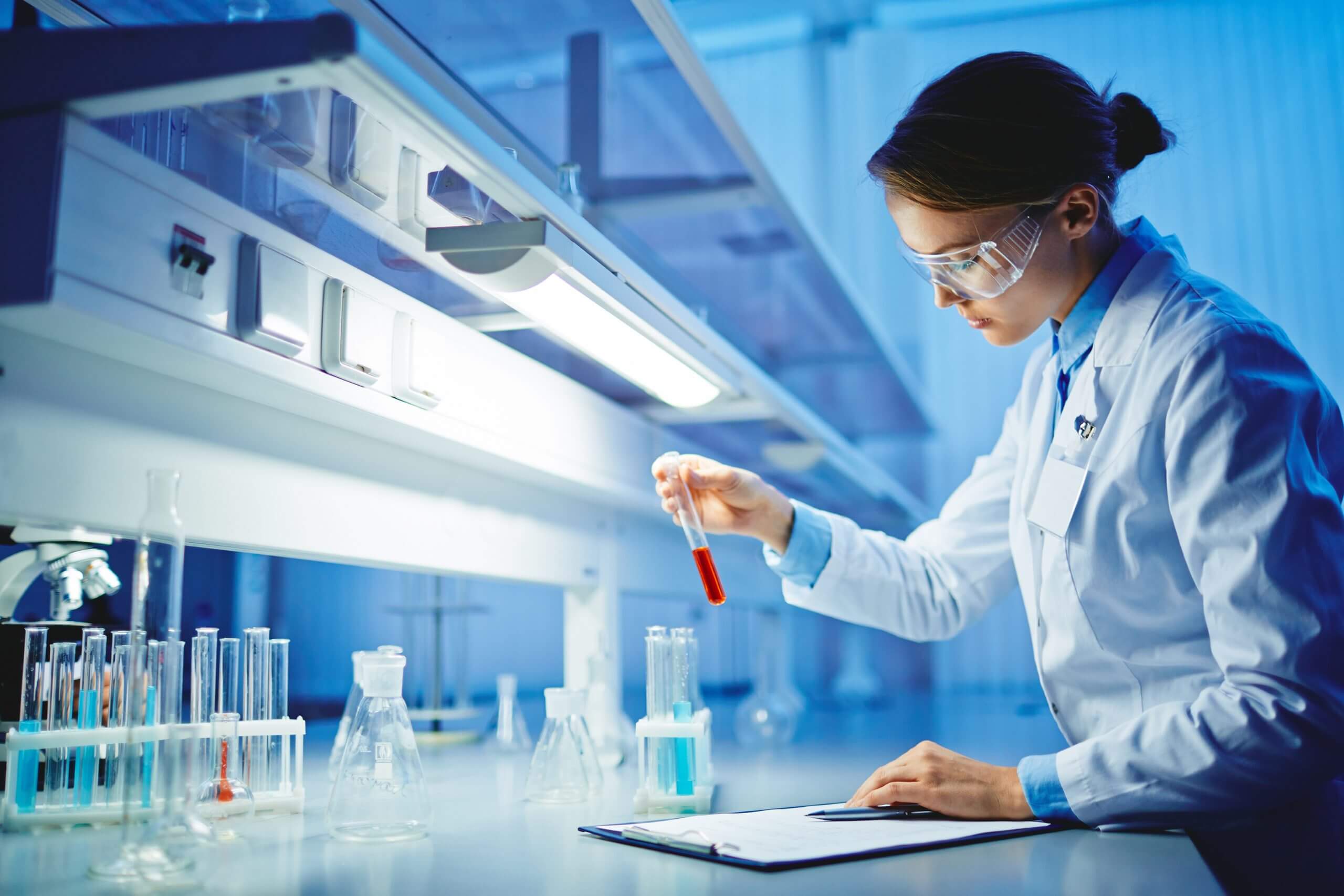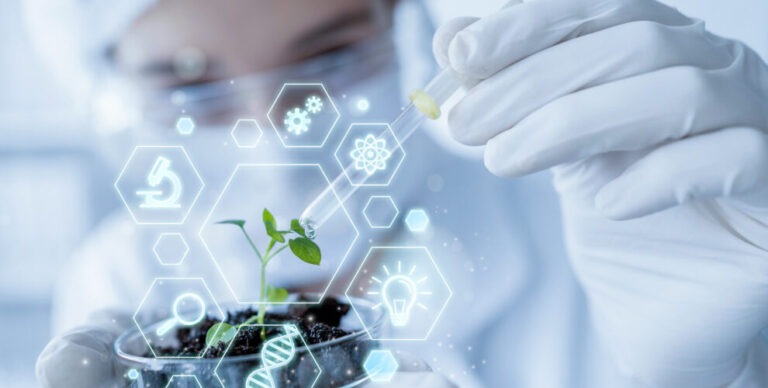The dawn of the 21st century has heralded an unprecedented era for biotechnology. What was once the domain of science fiction, with its promises of genetic cures and engineered organisms, is now a tangible reality. Biotech breakthroughs are unfolding at an astonishing pace, fundamentally reshaping healthcare, agriculture, industry, and even our understanding of life itself. This comprehensive article delves into the cutting-edge innovations emerging from the biotechnology sector, exploring their profound impact, the ethical considerations they raise, and the exciting future that these scientific advancements promise. We will uncover how manipulating biological systems at a molecular level is not just creating new products, but also offering transformative solutions to some of humanity’s most persistent challenges.
The Core Disciplines of Biotechnology

Biotechnology is a vast and interdisciplinary field that harnesses biological systems, living organisms, or their derivatives to make or modify products or processes for specific use. Its power lies in our growing ability to read, write, and edit the code of life.
A. Genetic Engineering and Gene Editing: This cornerstone of modern biotechnology involves directly manipulating an organism’s genes.
* Recombinant DNA Technology: The original form of genetic engineering, where DNA from different sources is combined to create new genetic sequences. This technique has been instrumental in producing therapeutic proteins like insulin and growth hormone in bacteria.
* CRISPR-Cas9 (Clustered Regularly Interspaced Short Palindromic Repeats): A revolutionary gene-editing tool that allows scientists to make precise, targeted changes to DNA. Often described as “molecular scissors,” CRISPR has dramatically simplified and accelerated the process of editing genes, opening up possibilities for correcting genetic defects, developing disease-resistant crops, and creating new research models. Its precision and ease of use make it a game-changer in the field.
* Base Editing and Prime Editing: Newer, even more precise gene-editing technologies that allow for single-base pair changes (base editing) or more complex insertions and deletions (prime editing) without creating double-strand breaks in DNA, potentially offering greater safety and versatility than traditional CRISPR.
B. Genomics and Proteomics: These fields involve the large-scale study of an organism’s entire set of genes (genome) and proteins (proteome).
* Genomics: The sequencing, assembly, and analysis of genomes. Advances in high-throughput sequencing technologies have drastically reduced the cost and time required to sequence DNA, leading to projects like the Human Genome Project and enabling personalized medicine by analyzing individual genetic variations.
* Proteomics: The large-scale study of proteins, their structures, and functions. Proteins are the workhorses of the cell, and understanding their dynamics is crucial for comprehending disease mechanisms and developing new drugs. Techniques like mass spectrometry are central to proteomics.
C. Bioprocessing and Biomanufacturing: This involves using living systems (like bacteria, yeast, or mammalian cells) to produce biological products on an industrial scale.
* Fermentation: A classic biotechnology process used for centuries (e.g., in brewing and baking) but now optimized for producing pharmaceuticals, biofuels, and enzymes.
* Cell Culture Technology: Growing cells in controlled environments to produce complex proteins, monoclonal antibodies, and vaccines. This forms the basis for many modern biopharmaceuticals.
* Synthetic Biology: An emerging field that combines biology, engineering, and computer science to design and construct new biological parts, devices, and systems, or to redesign existing natural biological systems. This can involve creating custom microbes to produce specific chemicals, materials, or fuels more efficiently.
D. Bioinformatics and Computational Biology: These disciplines apply computational tools and statistical methods to analyze large biological datasets.
* Data Analysis: Managing and interpreting the vast amounts of data generated by genomics, proteomics, and other high-throughput biological experiments.
* Modeling and Simulation: Creating computational models of biological systems to predict their behavior, simulate drug interactions, or design experiments more efficiently. This is crucial for accelerating research and development.
* Drug Design: Using computational methods to design and screen potential drug molecules, significantly reducing the time and cost involved in traditional drug discovery.
Biotech’s Transformative Impact Across Industries
Biotechnology is not just confined to the laboratory; its innovations are spilling over into every major sector, creating new opportunities and solving long-standing problems.
1. Healthcare
The most direct and profound impact of biotech is on human health, leading to new diagnostics, therapies, and preventive measures.
A. Gene Therapies: These therapies aim to treat or prevent disease by correcting underlying genetic defects. Breakthroughs like Luxturna (for a rare inherited eye disease) and Zolgensma (for spinal muscular atrophy) have demonstrated the power of introducing functional genes into patients to compensate for faulty ones. The pipeline for gene therapies targeting a wide range of genetic disorders, from cystic fibrosis to Huntington’s disease, is robust.
B. Personalized Medicine (Precision Medicine): By analyzing an individual’s unique genetic makeup, doctors can tailor medical treatments and preventative strategies. This involves using genomic data to predict a patient’s response to specific drugs, identify disease risks, and select the most effective therapies, moving away from a one-size-fits-all approach to medicine. Pharmacogenomics, a subset of this field, studies how genes affect a person’s response to drugs.
C. Immunotherapies and Antibody-Based Drugs: Harnessing the body’s own immune system to fight diseases, especially cancer. CAR T-cell therapy, for instance, genetically modifies a patient’s own T-cells to target and destroy cancer cells. Monoclonal antibodies, specifically designed to target disease-causing molecules, are now standard treatments for various cancers, autoimmune diseases, and infectious diseases.
D. Advanced Diagnostics: Biotech is enabling earlier and more accurate disease detection. Liquid biopsies can detect cancer DNA in blood, allowing for non-invasive screening and monitoring. Advanced molecular diagnostics can identify pathogens, genetic predispositions, and disease biomarkers with unprecedented speed and sensitivity, leading to faster diagnoses and more targeted interventions.
E. Vaccine Development: Biotechnology has revolutionized vaccine production, from recombinant protein vaccines to mRNA vaccines, which demonstrated unprecedented speed in development during the COVID-19 pandemic. These platforms offer flexibility and rapid response capabilities for emerging infectious diseases. Future vaccines may target chronic diseases or even cancer.
2. Agriculture and Food
Biotechnology is crucial for addressing global food security, improving crop yields, and developing more sustainable agricultural practices.
A. Genetically Modified (GM) Crops and Precision Breeding: GM crops are engineered for traits like pest resistance (e.g., Bt corn), herbicide tolerance, or enhanced nutritional content (e.g., Golden Rice with Vitamin A). Newer precision breeding techniques like CRISPR allow for targeted genetic modifications that can improve crop yields, resilience to climate change (drought or flood tolerance), and disease resistance without introducing foreign DNA.
B. Enhanced Livestock and Aquaculture: Biotechnology is being used to improve animal health, growth rates, and disease resistance in livestock and aquaculture. This includes genetic selection for desirable traits, vaccine development for animal diseases, and even creating genetically engineered animals that produce therapeutic proteins in their milk.
C. Biofertilizers and Biopesticides: Developing biological alternatives to synthetic chemical fertilizers and pesticides. Microbes can be engineered to enhance nutrient uptake by plants or produce compounds that deter pests, reducing the environmental impact of farming and promoting soil health.
D. Sustainable Food Production: Beyond traditional agriculture, biotech is enabling entirely new ways of producing food. This includes precision fermentation to create dairy proteins, fats, or flavors without animals, and cell-cultured meat, where meat is grown directly from animal cells in bioreactors, significantly reducing land, water, and greenhouse gas requirements compared to conventional livestock farming.
E. Diagnostic Tools for Food Safety: Biotech-based rapid tests can detect pathogens, allergens, and contaminants in food products, ensuring food safety and reducing foodborne illnesses. This helps prevent costly recalls and protects public health across the global food supply chain.
3. Industrial and Environmental Applications
Biotechnology offers green solutions across various industries, from manufacturing to waste management, promoting efficiency and sustainability.
A. Biofuels and Bioenergy: Developing microorganisms (e.g., algae, bacteria, yeast) that can convert biomass into renewable energy sources like ethanol, biodiesel, and biogas. This aims to reduce reliance on fossil fuels and mitigate climate change. Research focuses on increasing efficiency and utilizing non-food feedstocks.
B. Bioplastics and Biomaterials: Producing plastics and other materials from renewable biological resources, which are often biodegradable or compostable, reducing reliance on petroleum-based plastics and minimizing plastic pollution. Examples include PLA (polylactic acid) from corn starch.
C. Bio-remediation: Using microorganisms to break down and detoxify pollutants in soil, water, and air. This includes cleaning up oil spills, degrading pesticides, and removing heavy metals from contaminated sites, offering an environmentally friendly alternative to chemical or physical remediation methods.
D. Enzyme Engineering: Engineering enzymes for industrial processes to make them more efficient, specific, and environmentally friendly. Enzymes are used in detergents (breaking down stains), textiles (bleaching), food processing (cheese making), and biofuel production, often replacing harsh chemicals and reducing energy consumption.
E. Biomining: Utilizing microorganisms to extract valuable metals from low-grade ores or mine waste. This is a more environmentally benign alternative to traditional mining methods, reducing energy consumption and chemical use.
4. Forensics and Security
Biotechnology plays a critical role in solving crimes, identifying individuals, and enhancing security measures.
A. DNA Fingerprinting and Profiling: A cornerstone of modern forensics, DNA profiling allows for the identification of individuals from biological samples (blood, hair, saliva) found at crime scenes. It’s also used for paternity testing and identifying remains.
B. Pathogen Detection and Biodefense: Biotech tools enable rapid and accurate detection of biological agents (viruses, bacteria, toxins) in environmental samples or clinical specimens. This is crucial for public health surveillance, outbreak response, and biodefense against bioterrorism threats.
C. Bio-authentication: Utilizing unique biological characteristics (e.g., DNA, fingerprints, facial recognition based on biological features) for secure identification and access control, enhancing cybersecurity and physical security.
D. Agricultural Biosecurity: Employing biotech tools to rapidly detect and identify plant and animal diseases, preventing their spread and protecting agricultural industries from devastating outbreaks.
Ethical Considerations and Societal Challenges

The transformative power of biotechnology also brings forth a complex array of ethical considerations and societal challenges that demand careful thought, public dialogue, and robust regulatory frameworks.
1. Gene Editing in Humans:
The ability to edit human genes raises profound ethical questions.
A. Germline vs. Somatic Editing:
* Somatic Gene Editing: Modifying genes in non-reproductive cells. Changes are not inherited by future generations. Generally considered more ethically acceptable for treating diseases in individuals (e.g., CRISPR for sickle cell disease).
* Germline Gene Editing: Modifying genes in reproductive cells (sperm, egg) or early embryos. Changes are heritable and would be passed down to future generations. This raises significant ethical concerns about unintended long-term consequences, unforeseen risks to future generations, and the concept of “designer babies.”
B. “Designer Babies” and Eugenics: The fear that gene-editing technologies could be used for “enhancement” rather than just disease treatment, creating a society where genetic advantages are selectively pursued, potentially exacerbating social inequalities and leading to a new form of eugenics.
C. Off-Target Effects and Mosaicism: Current gene-editing technologies can sometimes make unintended changes to the DNA (“off-target effects”) or result in only some cells being edited (“mosaicism”), leading to unpredictable outcomes and potential safety concerns.
2. Data Privacy and Genetic Information:
The rise of genomic sequencing and personalized medicine generates vast amounts of highly sensitive genetic data.
A. Confidentiality and Misuse: Concerns about how genetic data is stored, shared, and protected. Misuse could lead to discrimination in employment or insurance, or exploitation by third parties.
B. Informed Consent: Ensuring individuals fully understand the implications of sharing their genetic information, especially as the potential uses of such data expand rapidly.
C. Ancestry and Identity: Genetic information can reveal sensitive details about ancestry, health risks, and family relationships, raising complex issues for individuals and communities.
3. Environmental Risks of Genetically Modified Organisms (GMOs):
While GMOs offer significant benefits, concerns about their environmental impact persist.
A. Gene Flow: The potential for genetically engineered traits (e.g., herbicide resistance) to spread to wild relatives through cross-pollination, leading to “superweeds” or other ecological imbalances.
B. Biodiversity Impact: Concerns that widespread planting of monoculture GM crops could reduce genetic diversity in agricultural systems and impact non-target organisms.
C. Resistance Development: The possibility that pests could develop resistance to GM crops engineered for pest resistance, necessitating new solutions.
4. Biosecurity and Dual-Use Research:
The same biotechnologies that offer immense benefits can also be misused.
A. Bioterrorism: The potential for highly accessible genetic engineering tools to be misused to create or enhance pathogens for malicious purposes.
B. Accidental Release: The risk of accidental release of engineered organisms from laboratories, with unpredictable ecological consequences.
C. Dual-Use Dilemma: Research intended for beneficial purposes (e.g., making a virus less virulent) could also inadvertently provide knowledge or tools that could be used for harm.
5. Accessibility and Equity:
The high cost of many advanced biotech therapies raises concerns about equitable access.
A. Exorbitant Costs: Many groundbreaking gene and cell therapies come with multi-million dollar price tags, making them inaccessible to a large portion of the global population and challenging healthcare systems worldwide.
B. Global Disparities: The benefits of biotechnology often disproportionately reach developed nations, exacerbating health and economic disparities between rich and poor countries.
C. Ethical Allocation: Difficult decisions about how to allocate scarce and expensive treatments when demand outstrips supply.
Conclusion
The rapid pace of biotech breakthroughs is not just incremental progress; it represents a fundamental shift in our ability to manipulate and understand life itself. From revolutionizing disease treatment with gene therapies and personalized medicine to transforming agriculture with resilient crops and sustainable food production, biotechnology is at the forefront of addressing humanity’s most pressing challenges. Its impact extends across industrial processes, environmental remediation, and even the very fabric of our security and identity through advanced forensics.
However, this immense power comes with profound ethical considerations. The implications of human gene editing, the privacy of genetic data, the environmental risks of GMOs, and the dual-use potential of biological research demand careful navigation, robust regulatory frameworks, and widespread public engagement. Ensuring equitable access to these life-changing technologies is also a critical challenge that must be addressed globally.
The future trajectory of biotechnology promises an even more integrated and transformative landscape, driven by its convergence with AI, nanotechnology, and quantum computing. As we stand on the cusp of an era where we can increasingly design and engineer biological systems, our collective responsibility is to ensure these powerful tools are used wisely, ethically, and for the benefit of all humanity. The biotech breakthroughs are not just unfolding; they are shaping a new paradigm for life on Earth, and our choices today will determine the future of this extraordinary revolution.




